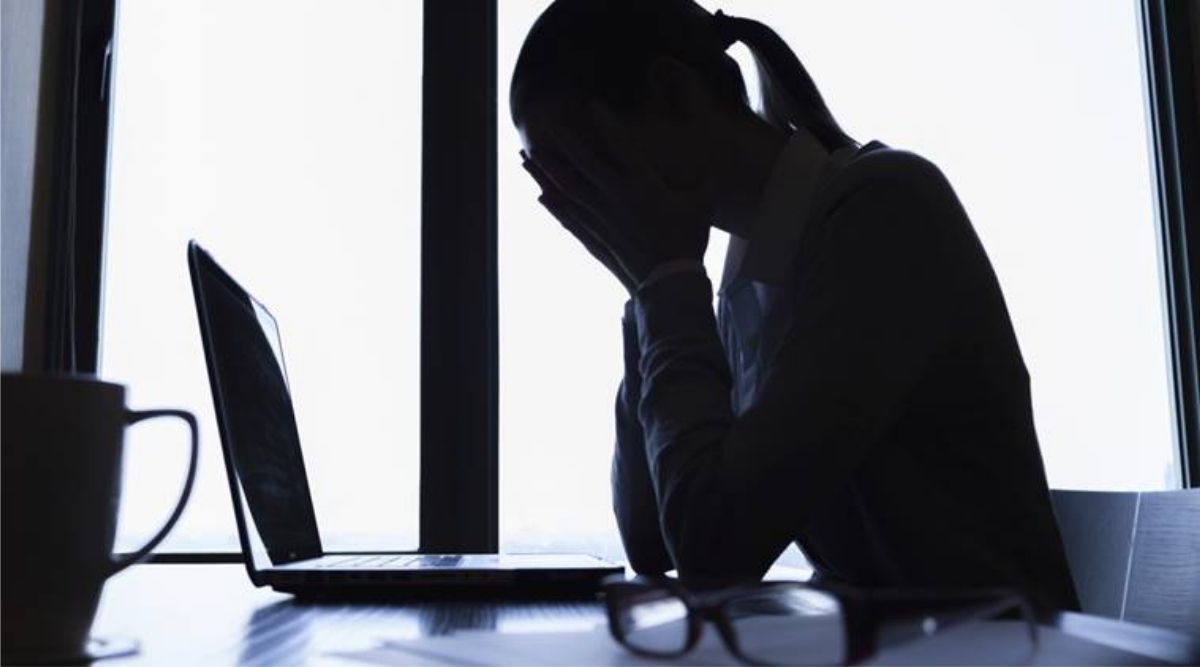 The psychiatry departments of both PGI and GMCH-32 have seen an increase in patients across age groups, including health care workers, seeking help and treatment. (Representational)
The psychiatry departments of both PGI and GMCH-32 have seen an increase in patients across age groups, including health care workers, seeking help and treatment. (Representational) THE suicide of a 21-year-old MBBS student of the Government Medical College and Hospital (GMCH-32), Chandigarh, on April 18 has again put the spotlight on mental health, with a rapid and reported rise in cases of depression, stress, anxiety, paranoia, feelings of loneliness and isolation due to the pandemic.
The psychiatry departments of both PGI and GMCH-32 have seen an increase in patients across age groups, including health care workers, seeking help and treatment. Covid-19 has also opened many discussions on mental health, with a number of studies focusing on how the pandemic posed a threat to doctors’ physical and mental health and the manner in which it influences their levels of stress, anxiety and depression.
The GMCH-32 and the PGI have systems and programmes to assist and reach out to new MBBS students and residents, and help them cope with new surroundings, academics and other pressures of a professional college. GMCH-32 has a trainee drop-in centre for students to seek help from psychiatrists and psychologists of the Department of Psychiatry. “We run a foundation course for new students for stress management and also inform them whom to reach out to in case of need,” says Dr Priti Arun, Professor, Department of Psychiatry, GMCH-32.
The hospital has also curated and conceptualised a mentorship programme, as part of which a mentor, a member of the faculty, is allocated to students when they enter college and he\she keeps in touch and provides support and a helping hand. The pandemic, adds Prof Arun, has been an extremely stressful period and caused a high level of anxiety among students.
“Not everyone is built for online classes. Interactions with teachers, fellow students and the outside world is paramount for the mental growth of a person. A college campus is not only about academics, it helps you learn about life at large. In these times, it is important that as people we reach out to each other. Some people can communicate, others can’t. As parents, teachers, friends and family, we need to be sensitive to others’ needs and not ignore the warning signs. It is only when a person feels completely helpless and alone, that he\she takes the extreme step of taking one’s own life. As a society, we need to be aware of mental health issues and provide support,” adds Prof Arun.
Dr Nitin Gupta, a city-based psychiatrist, former faculty member from the Department of Psychiatry, GMCH-32, says while support systems and programmes in medical colleges strive to provide assistance to new students, the issue is how much a student is willing to share, both personal and professional issues. “Many studies show that medical students face stress, depression, low self-esteem and providing support in a new environment, away from family and friends, is paramount. AIIMS-Delhi has a 24-hour drop-in cell, where students can seek help, and their anonymity and confidentiality are maintained. Yet, mental health morbidity does occur. In GMCH-32, Prof B S Chavan, head of Psychiatry Department, had set up an occupational wellness centre for students and the phone numbers of psychiatrists were circulated to students. The effort should be to provide assistance so that mental health issues don’t develop and we need a collective effort to do this,” adds Dr Gupta.
Dr Rahul Chakravarty, the new president of the Association of Resident Doctors, PGI, an MD in Psychiatry, from the institute and a senior resident here says the mental health of residents is the top priority and the need of the hour. “Suicide by 21-year-old shows that as a society we are not sensitised enough towards mental health and we failed to see she was stressed. Clear-cut markers need to be identified and sorted, and friends need to come together if someone in a group is not responding, seems quiet, aloof and not part of the day-to-day life. Most important is to have a group of friends, communicate, share, and as parents and family, we have to encourage team play, communication, conversations and time for each other. The younger generation is isolated, lonely and spending time only on mobiles. As people, we cannot overlook signs and we can work towards a working environment where stress and anxiety can be reduced, with small changes and more understanding between colleagues; communication is key, for many issues can be resolved by sharing. We need sensitisation towards mental health and practical ways to handle stress,” says Dr Chakravarty.
- The Indian Express website has been rated GREEN for its credibility and trustworthiness by Newsguard, a global service that rates news sources for their journalistic standards.

